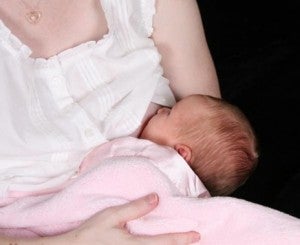Breast Milk Exosomes and Mechanisms of Immunotoxicity from Perfluorinated Compounds (PFCs) and Polychlorinated Biphenyls (PCBs)
Principal Investigator: Diddier Prada, M.D., Ph.D.
Early-life development of the immune system, which is essential for survival and lifetime susceptibility to immune and infectious diseases, depends on appropriate antigen exposure and processing, maternal factors, and active vaccination. On the other hand, susceptibility of healthy children to regular prophylactic vaccination varies substantially worldwide. We have recently shown that prenatal exposure to perfluorinated compounds (PFCs) and polychlorinated biphenyls (PCBs) was associated with lower response to vaccination, producing antibody concentrations even below the desired protective level. However, the mechanisms of immunotoxicity and adaptability to prenatal PFC and PCB exposure are unknown. Exosomes, tiny endosome-derived membrane vesicles containing proteins, bioactive lipids and nucleic acids, have been recently identified in breast milk, and may represent a novel signaling system for immune communication between the mother and the child. To explore the role of breast milk exosomes, and immune-related encapsulated microRNAs, as mechanisms of adaptation to PFC and PCB immunotoxicity, we will characterize exosomes in the longitudinal Faroe Islands birth cohort (n=40 selected samples from 582 available). We will determine if changes in exosomes may reflect maternal exposures and predict differential immune development in children.
Using the pilots results obtained with Hoffman support, the investigators obtained a R21 from NIH (1 R21 ES027087-01, Early Exposure to Persistent Organic Pollutants, Breast Milk Extracellular Vesicles and Abnormal Cardiometabolic Programming). The following publications have resulted from this work.
Products resulting from Hoffman support
Kupsco A, Lee JJ, Prada D, Valvi D, Hu L, Petersen MS, Coull BA, Weihe P, Grandjean P, Baccarelli AA. Marine pollutant exposures and human milk extracellular vesicle-microRNAs in a mother-infant cohort from the Faroe Islands. Environ Int. 2022 Jan;158:106986. doi: 10.1016/j.envint.2021.106986. Epub 2021 Nov 20. PMID: 34991248; PMCID: PMC8742869.
Kupsco A, Prada D, Valvi D, Hu L, Petersen MS, Coull B, Grandjean P, Weihe P, Baccarelli AA. Human milk extracellular vesicle miRNA expression and associations with maternal characteristics in a population-based cohort from the Faroe Islands. Sci Rep. 2021 Mar 12;11(1):5840. doi: 10.1038/s41598-021-84809-2. PMID: 33712635; PMCID: PMC7970999.

